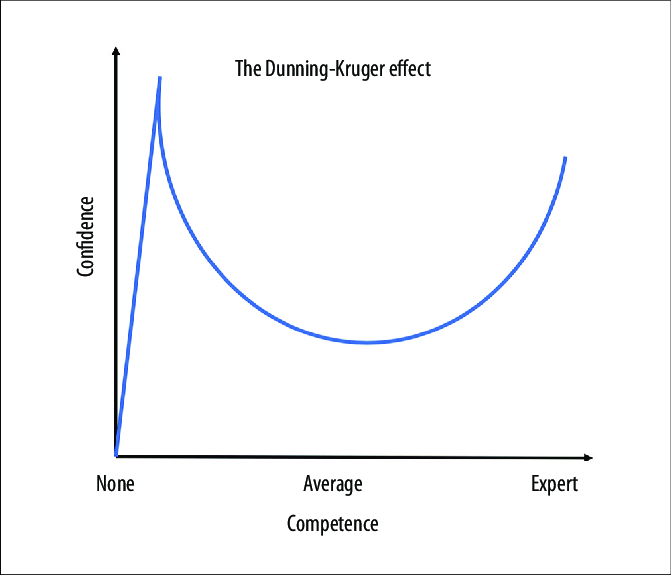The more you know, the more you realise you don’t know
Aristotle
Wondering what the Dunning Kruger effect is? Well, first you need to consider the following question.
Have you ever felt as though the more you know, the less you know you know?
That every video you watch, article you read or ‘fact’ you check only provokes another ten questions? Does it feel like the ‘smarter’ you become by researching the issue, the dumber you feel?
Interestingly enough, this also works in the opposite way. The less you know about a particular area, the more likely you are to think you know it all. Intelligent people often believe they know very little, because they know how much there still is to learn.
This is what is known as the Dunning Kruger effect.
The Dunning Kruger Effect is a Cognitive bias
The Dunning Kruger effect in science terminology is known as a cognitive bias. This describes what happens when people wrongly overestimate their skills in a certain area, due to a lack of knowledge. Coined by David Dunning and Justin Kruger in a 1999 academic paper, they explain it as follows:
“Those with limited knowledge in a domain suffer a dual burden: Not only do they reach mistaken conclusions and make regrettable errors, but their incompetence robs them of the ability to realise it.”

“Paradoxically, improving the skills of participants, and thus increasing their metacognitive competence, helped them recognise the limitations of their abilities.”
So should we stop learning?
It is a difficult reality to face; that the more we learn, the more we realise we do not know. It can bring with it feelings of helplessness, low self-esteem and anxiety.
Yet if we do not seek the truth, ask questions, and try and continue to expand our knowledge on topics no one else dare touch, we can only rely on the opinions of others. The trouble with relying on opinions?
The person’s opinion you choose to rely on could be suffering from the Dunning Kruger effect. Are you willing to risk that?
References:
Kruger, J., & Dunning, D. (1999). Unskilled and unaware of it: how difficulties in recognizing one’s own incompetence lead to inflated self-assessments. Journal of personality and social psychology, 77 6, 1121-34 .
Zawadka, M., Graczyńska, A., Janiszewska, A., Ostrowski, A., Michałowski, M., Rykowski, M., & Andruszkiewicz, P. (2019). Lessons learned from a study of the integration of a point-of-care ultrasound course into the undergraduate medical school curriculum. Medical science monitor: international medical journal of experimental and clinical research, 25, 4104.


Leave a Reply